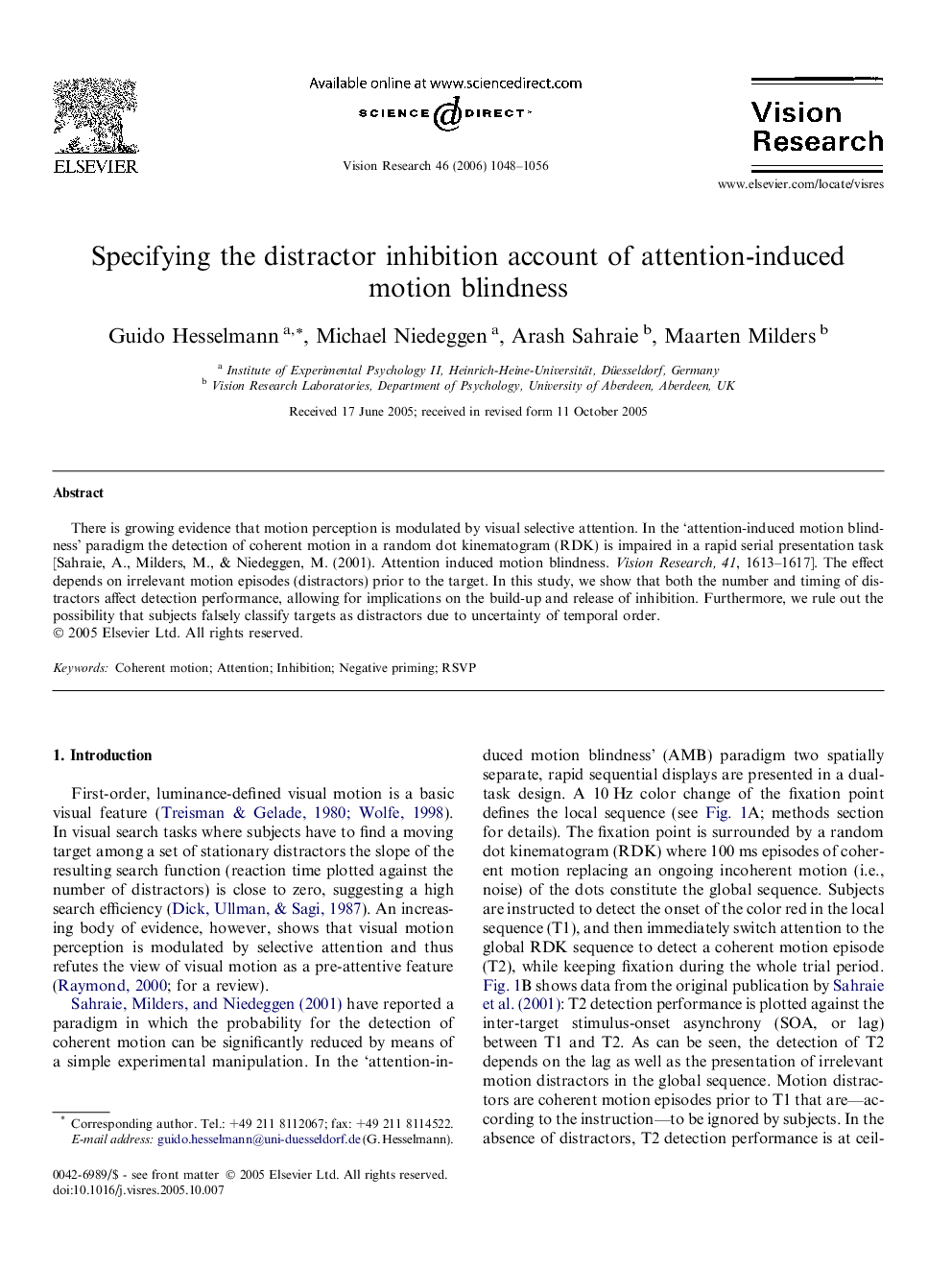| Article ID | Journal | Published Year | Pages | File Type |
|---|---|---|---|---|
| 4036362 | Vision Research | 2006 | 9 Pages |
There is growing evidence that motion perception is modulated by visual selective attention. In the ‘attention-induced motion blindness’ paradigm the detection of coherent motion in a random dot kinematogram (RDK) is impaired in a rapid serial presentation task [Sahraie, A., Milders, M., & Niedeggen, M. (2001). Attention induced motion blindness. Vision Research, 41, 1613–1617]. The effect depends on irrelevant motion episodes (distractors) prior to the target. In this study, we show that both the number and timing of distractors affect detection performance, allowing for implications on the build-up and release of inhibition. Furthermore, we rule out the possibility that subjects falsely classify targets as distractors due to uncertainty of temporal order.
